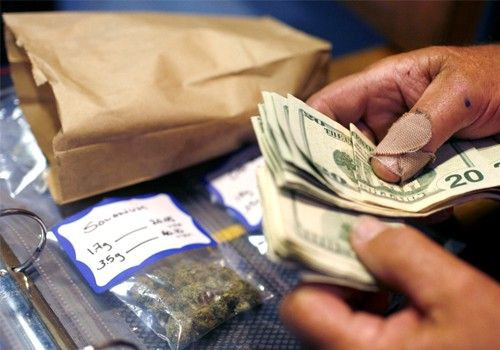Oakland city council warned by Feds not to break U.S. pot law

Oakland officials have been warned by federal authorities not to allow large-scale marijuana farms in the city as it violates U.S. laws and could lead to a crackdown on the growers and their backers.
In a strongly worded letter to Oakland City Attorney John Russo, U.S. Attorney for the Northern District of California Melinda Haag said the Department of Justice would not tolerate the city-sanctioned growing operations as it violates federal laws.
The department is concerned about the Oakland ordinance's creation of a licensing scheme that permits large-scale industrial marijuana cultivation and manufacturing as it authorizes conduct contrary to federal law, Haag wrote.
Accordingly the department is carefully considering civil and criminal legal remedies regarding those who seek to set up industrial marijuana growing warehouses in Oakland pursuant to licenses issued by the City of Oakland, the letter dated Feb. 1 said.
City spokesman Alex Katz said Russo is planning to draft amendments to Oakland's medical marijuana regulations to address cultivation issue. The matter is likely to be brought before the city council in the next few weeks, he said.
Last December, the council had put the application process for growers' licenses on hold following a warning from the Alameda County District Attorney Nancy O'Malley that the city's ordinance also likely violated state law.
O'Malley said she doubted whether the farms, as conceived under Oakland's original ordinance, could qualify as primary caregivers. She also warned that even the council members might face criminal prosecution if the farms were allowed to open.
California became the first state to decriminalize medicinal use of marijuana in 1996. The law allows users only to grow pot for themselves or obtain it from a designated primary caregiver.
Though the law faced opposition from the Justice Department under President George Bush, yet, the Obama administration supports medicinal use of marijuana and has assured that federal attorneys would no longer prosecute patients who use marijuana, or dispensaries that distribute it, for medical reasons in states where it has been legalized.
As a result, hundreds of marijuana dispensaries have mushroomed throughout the state and have been operating largely free from interference from authorities by having users designate the dispensary as their primary caregiver.
However, Haag said federal authorities will enforce a crackdown on illegal manufacturing and distribution of marijuana, even if such activities are permitted under state law as they violate federal anti-drug laws.
In the crackdown, she warned, not only operators of marijuana farms but also landlords, property owners, financiers and even the city's council members could face prosecution.
The warning came even as councilwoman Desley Brooks introduced a plan earlier this week that seeks to bring the city's marijuana cultivation plans into compliance with the state law by tying each farm to an individual marijuana dispensary. The plan would allow five new dispensaries to operate its own industrial-size marijuana farms of up to 50,000 square feet and the estimated annual yield could provide up to one-fifth of the state's medical marijuana demand.
However, the federal law authorities, which encourage use of marijuana as medicine and tolerate its cultivation and distribution in small storefront operations, don't want it to grow into a largely unregulated industry as it is a hot-button issue in Washington.
Brooks' plan and Russo proposed amendments will be discussed at the council's Public Safety Committee meeting on Feb. 8. The full council will discuss the issue again at their Feb. 15 meeting.
© Copyright IBTimes 2024. All rights reserved.





















